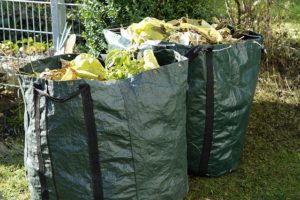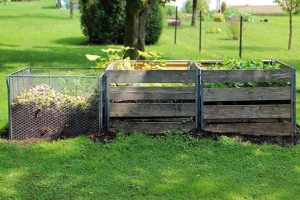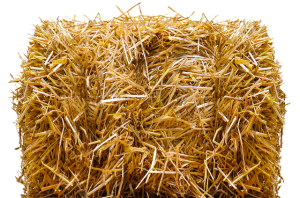Now we gear our time in the garden towards clean up. Preparing our garden for a long winter’s rest. Fall clean up can involve many different processes depending how you choose to manage your garden. Some common activities include:
- Removing dead, diseased and/or infested plants and materials
- Layering mulch to protect plants
- Applying a protective wrap around tree trunks to prevent sun scald
- Amending soil and preparing beds for the following growing season
- Planting a cover crop to improve soil condition
Garden Plant Health
Seasonal maintenance helps your garden to grow the healthiest plants possible. Leaving infected material in the garden increases the chance of spreading diseases like Early Blight and Tomato Spotted Wilt virus. It also benefits from removing materials that harbor hibernating insects that can spend the winter hidden under leaves, dirt clods, wood piles or other weather protected areas.
- If you had a challenging growing season with viruses, diseased plants, or an insect infestation, it would be advisable to
 do a thorough garden clean up.
do a thorough garden clean up.
- Bagging up and removing all affected plant material, including weeds, from your garden area.
- Composting this diseased plant material could re-introduce the disease to your garden in the next growing season.
- Home compost systems are not able to get to a sufficiently high temperature, although some commercial facilities may be an option.
- It is best to dispose of plant material properly.
- Further efforts can include amending your soil this fall to replace nutrients depleted by plants this year.
- This can be made up of leaves, manure, or compost.
- Even certified weed free straw can be amended into the soil.
- Avoid amending materials such as mulch or large pieces of wood such as bark chips.

- Add a layer of mulch or straw over root crops to maintain soil temperatures and extend your growing season a bit longer. This will help crops that have some cold hardiness, it will not help those that are tender to frost.
- Clean tools and support structures. Use a dilute bleach (1/3 cup bleach per gallon of water) or alcohol solution to disinfect.
Think Ahead
 Lastly, take some time this winter to think about how you can improve your garden. Plan your space and plants to grow next year. This is a great way to use your extra time and energy once the garden is asleep. Water trees, perennial flowers and shrubs in the winter when temperatures are above freezing.
Lastly, take some time this winter to think about how you can improve your garden. Plan your space and plants to grow next year. This is a great way to use your extra time and energy once the garden is asleep. Water trees, perennial flowers and shrubs in the winter when temperatures are above freezing.
Be sure to check the CSU Extension Grow & Give project website for a wealth of information on growing, maintaining, and caring for your vegetable garden.


Thanks for helping me get organized and motivated to get my garden ready for winter!